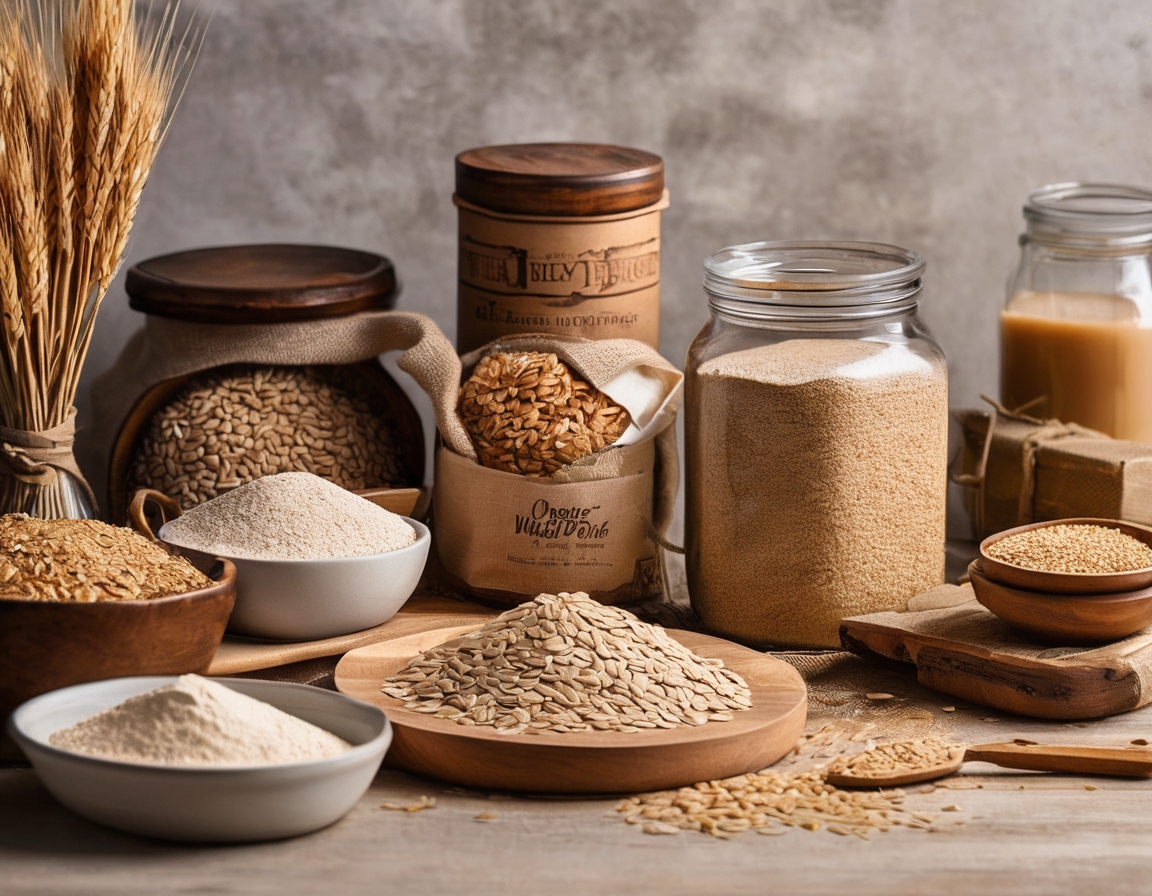The benefits of organic whole grain flours
Organic whole grain flours are derived from grains that are grown without the use of synthetic pesticides, fertilizers, or genetically modified organisms (GMOs). These flours retain all parts of the grain kernel, including the bran, germ, and endosperm, ensuring that they are packed with nutrients and flavor.
Organic certification guarantees that the grains used in these flours are produced following strict agricultural standards. This certification not only assures consumers of the product's purity but also supports sustainable farming practices that are better for the environment.
Nutritional Benefits of Whole Grain Flours
Whole grain flours are a powerhouse of essential nutrients, including vitamins B and E, magnesium, iron, and antioxidants. These nutrients play a crucial role in maintaining overall health and well-being.
The high fiber content in whole grain flours aids in digestion, helps maintain healthy cholesterol levels, and keeps you feeling full longer, which can be beneficial for weight management.
Whole grain flours have a lower glycemic index compared to refined flours, meaning they cause a slower, more gradual rise in blood sugar levels. This can be particularly beneficial for individuals managing diabetes or those looking to maintain steady energy levels throughout the day.
Health Benefits of Organic Whole Grain Flours
The fiber in whole grain flours promotes healthy digestion by adding bulk to stools and facilitating regular bowel movements, reducing the risk of constipation and other digestive issues.
Consuming whole grains has been linked to a reduced risk of heart disease. The nutrients and fiber in whole grain flours help lower cholesterol levels and improve heart health.
Whole grain flours can aid in weight management by promoting satiety and reducing overall calorie intake. Their nutrient density ensures that you get more nutrition per calorie, supporting a balanced diet.
Environmental and Ethical Benefits
Organic farming practices used to produce whole grain flours are designed to preserve soil health, reduce pollution, and promote biodiversity. These practices contribute to a more sustainable food system.
By choosing organic whole grain flours, consumers reduce their exposure to harmful chemicals and pesticides, which can have long-term health implications.
Purchasing organic whole grain flours supports local farmers who are committed to sustainable and ethical farming practices, helping to build a more resilient and equitable food system.
Culinary Uses and Versatility
Whole grain flours can be used in a variety of baking applications, from breads and muffins to cookies and pancakes. They add a rich, nutty flavor and a hearty texture to baked goods.
Beyond baking, whole grain flours can be used to thicken soups and sauces, create flavorful coatings for meats and vegetables, and even make homemade pasta.
The unique flavors and textures of whole grain flours can elevate everyday dishes, providing a wholesome and satisfying culinary experience.
Choosing the Right Organic Whole Grain Flour
There are several types of whole grain flours available, including wheat, spelt, rye, and oat flours. Each type offers distinct flavors and nutritional profiles, allowing for a variety of culinary applications.
To maintain freshness, whole grain flours should be stored in a cool, dry place, preferably in an airtight container. They generally have a shorter shelf life than refined flours due to their natural oils, so it's important to use them within a few months of purchase.
When purchasing organic whole grain flours, look for products with clear labeling and certification. Buying from reputable brands or local mills can ensure quality and support sustainable practices.






Comments (0)